CAR-NK Cell Therapy: A New Hope for Stage 4 Brain Cancer

Stage 4 brain cancer, known as glioblastoma multiforme (GBM), is a highly aggressive and challenging form of cancer with limited therapy options and poor survival rates. Traditional treatments, including surgery, radiation, and chemotherapy, often fall short due to the invasive nature and heterogeneity of GBM. This blog delves into the innovative CAR-NK cell therapy, which leverages the body’s immune system to target and destroy cancer cells. Unlike conventional treatments, CAR-NK therapy shows promise in clinical trials with fewer side effects, offering new hope for patients battling this devastating disease. Explore how this revolutionary approach could transform the therapeutic landscape for GBM.
Understanding Prostate Cancer Stage 4: Advanced Insights and Emerging Therapies

Stage 4 prostate cancer, known for its metastasis beyond the prostate gland, presents significant challenges in clinical management. This article explores the complexities of this advanced stage, including its characteristics and current strategies such as hormone therapy, chemotherapy, radiation, and bone-targeted therapies. Additionally, it highlights promising new approaches like CAR-NK Cell Therapy, which offers innovative ways to improve patient outcomes. By integrating these emerging therapies with existing methods, healthcare providers can offer more comprehensive and effective care for those battling advanced prostate cancer.
Innovative Therapies for Stage 4 Pancreatic Cancer: Hope on the Horizon

Stage 4 pancreatic cancer remains a formidable challenge, often leaving patients and their families in search of new therapies. Recent advancements in medical research are now offering new avenues of hope. This blog explores cutting-edge therapies, particularly the promising CAR-NK cell therapy, which leverages the body’s natural immune mechanisms to target and destroy cancer cells with enhanced specificity and potency. By understanding the aggressive nature of stage 4 pancreatic cancer and the potential of innovative therapies like CAR-NK cell therapy, patients can find renewed optimism in their battle against this devastating disease.
Unlocking New Hope: Immunotherapy for Lung Cancer
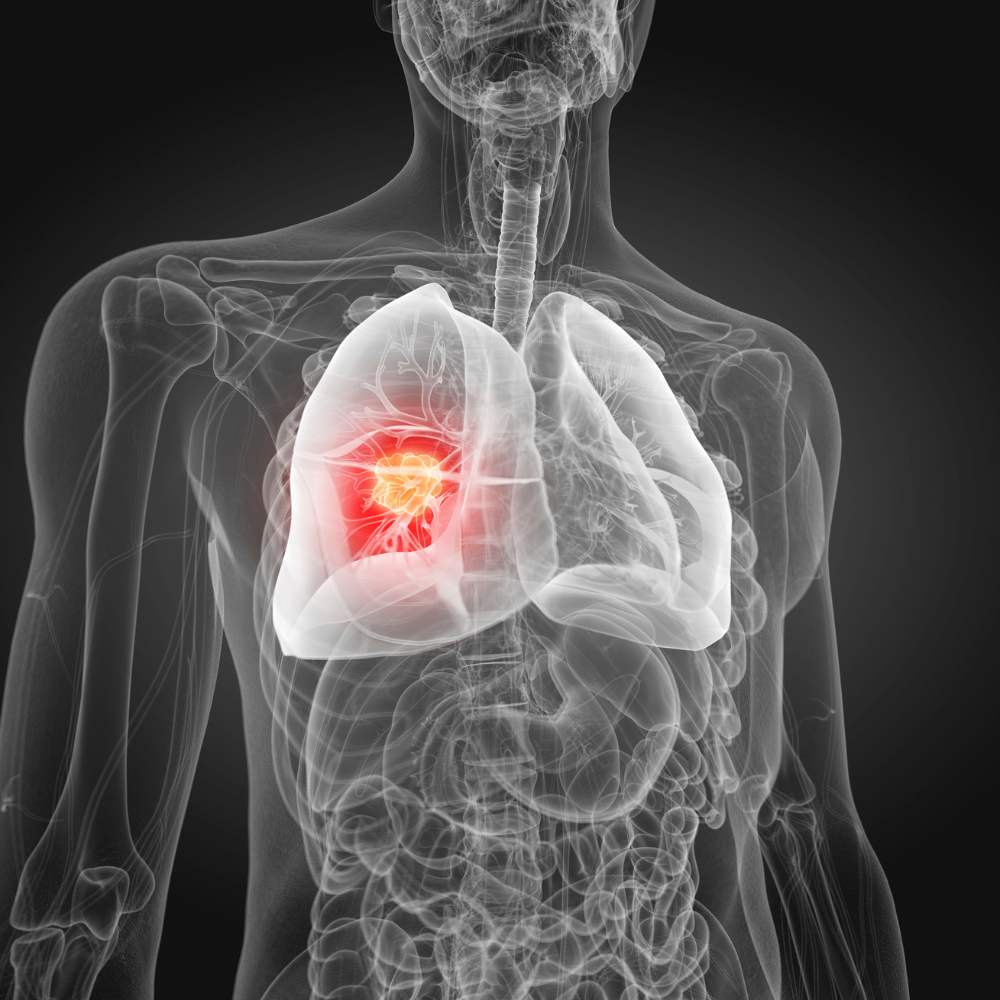
Lung cancer remains a formidable challenge, but immunotherapy offers new hope by harnessing the body’s immune system to combat cancer cells. Traditional treatments like surgery, radiation, and chemotherapy often fall short for advanced cases. Immunotherapy, including checkpoint inhibitors like pembrolizumab (Keytruda) and nivolumab (Opdivo), personalized vaccines, and CAR-T cell therapy, provides innovative alternatives. CAR-NK cell therapy is emerging as a promising option with fewer side effects. Ongoing clinical trials, such as CheckMate 227, explore combining immunotherapy with other treatments to improve outcomes. As research advances, immunotherapy aims to revolutionize lung cancer therapy, enhancing survival rates and quality of life.
Is Leukemia Cancer Curable? Exploring Advances and Hope for Patients
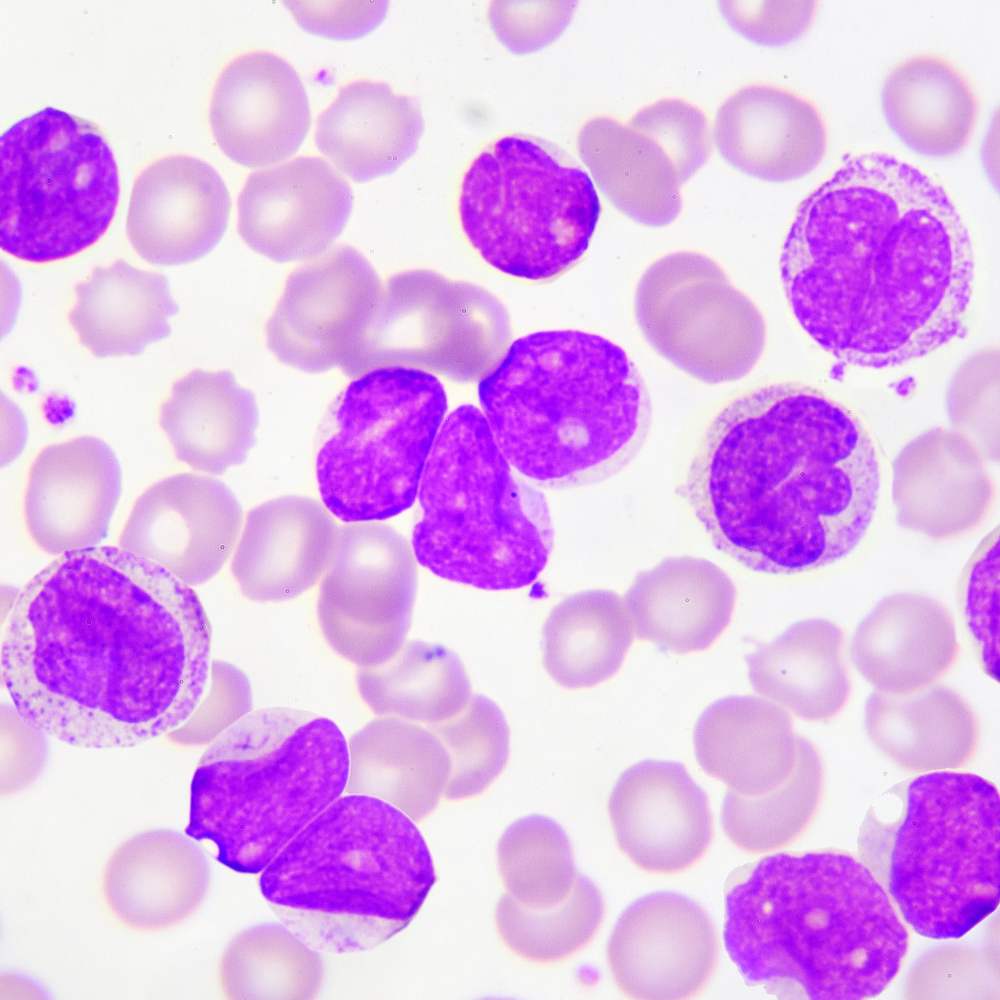
Leukemia, a blood-forming tissue cancer, has seen significant research and advancements in recent years. This blog explores the curability of leukemia by examining its nature, types, symptoms, and cutting-edge treatments, including the promising CAR-NK Cell Therapy. We’ll delve into the specifics of Acute Lymphoblastic Leukemia, Acute Myeloid Leukemia, Chronic Lymphocytic Leukemia, and Chronic Myeloid Leukemia, and highlight the latest treatment options like chemotherapy, radiation therapy, stem cell transplants, targeted therapy, and immunotherapy. Discover the hope these advancements bring to leukemia patients and the future of cancer care.
Can Immunotherapy Cure Stage 4 Cancer? Exploring the Promising Horizons

The fight against cancer has seen remarkable progress with immunotherapy, which empowers the body’s immune system to combat cancer cells. Can it cure stage 4 cancer? This blog explores this critical question, focusing on the latest advancements and the promising potential of CAR-NK Cell Therapy. Immunotherapy, including monoclonal antibodies, immune checkpoint inhibitors, cancer vaccines, and T-cell transfer therapy, has revolutionized therapy by offering targeted approaches with fewer side effects and improved outcomes. For stage 4 cancer patients, it has shown significant survival and quality of life improvements, with some achieving complete remission. CAR-NK Cell Therapy, a groundbreaking development, modifies natural killer (NK) cells to target and destroy cancer cells, offering advantages like reduced toxicity and broader applicability. While not a guaranteed cure for all, these advancements bring significant hope.
Innovative Cancer Care: The Promise of CAR-NK Cell Therapy
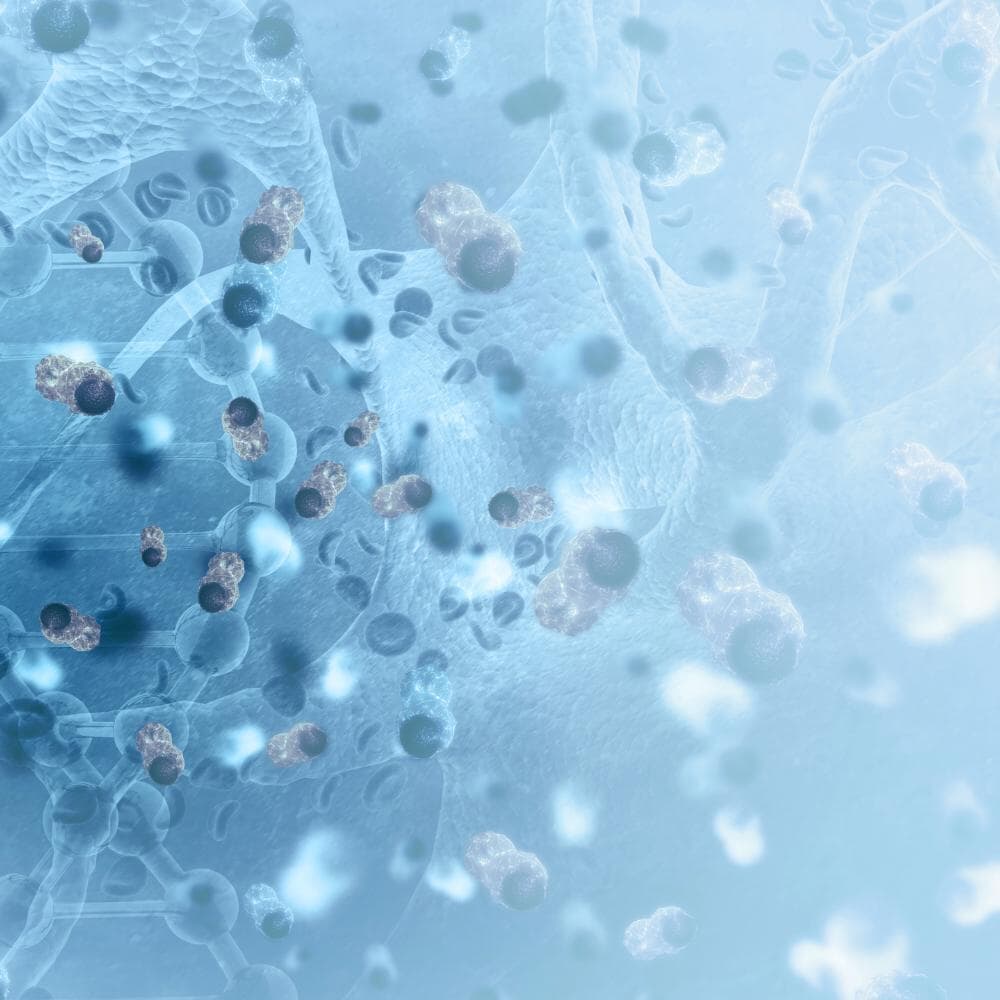
The world of cancer care is continually evolving, with innovative therapies emerging to improve patient outcomes. One of the most promising advancements in immunotherapy is CAR-NK Cell Therapy, which uses genetically engineered natural killer (NK) cells to target and destroy cancer cells more effectively. At F3Nix Institute, we are leading in this cutting-edge therapy, offering hope to patients battling various cancers. CAR-NK cells are equipped with chimeric antigen receptors (CARs) that enhance their ability to identify and attack malignant cells, offering advantages like reduced toxicity, broader applicability, quicker availability, and enhanced efficacy over traditional treatments and other immunotherapies. The therapy process involves patient evaluation, cell collection and engineering, pre-treatment conditioning, infusion, and close monitoring. Ongoing research aims to improve CAR-NK cells’ effectiveness and expand their applications, making this therapy a beacon of hope for cancer patients.
The Power of Immunotherapy for Cancer: Exploring CAR NK-Cell Therapy

Discover the revolutionary potential of immunotherapy in cancer treatment with our latest blog post on “The Power of Immunotherapy for Cancer: Exploring CAR NK-Cell Therapy.” This cutting-edge approach leverages the body’s immune system, particularly through CAR NK-cell therapy, to target and destroy cancer cells more precisely and effectively. Learn how this innovative therapy represents a significant advance in cancer treatment, potentially offering longer remission periods and fewer side effects compared to traditional methods. Dive deep into the science behind immunotherapy and how it could transform cancer care, making treatment more sustainable and accessible.
Unleashing the Power of Natural Killer Cells: A New Horizon in Cancer Therapy
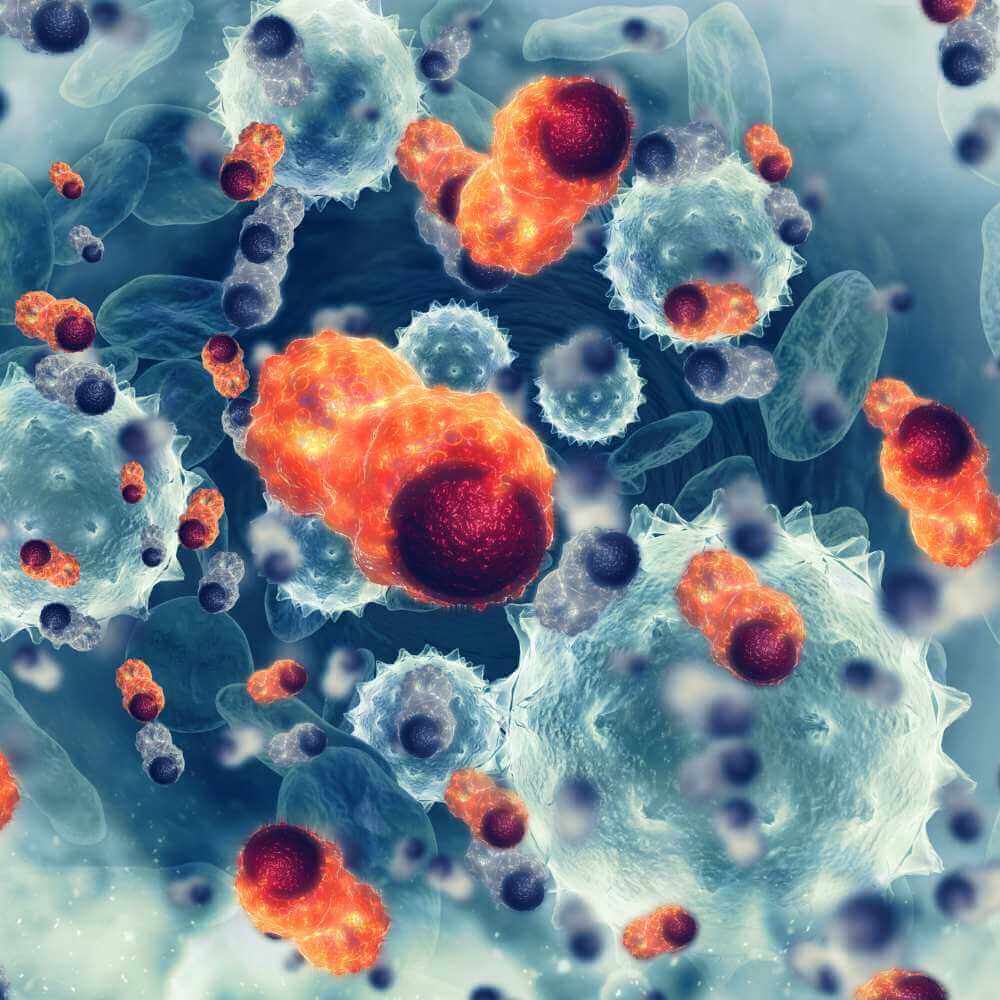
Discover the transformative power of Natural Killer (NK) cells in cancer therapy. This blog post delves into the innovative use of CAR NK-Cell Therapy, which harnesses the body’s own immune system to target and destroy cancer cells more efficiently. Learn about the science behind NK cells, their unique capabilities in recognizing and eliminating cancer cells, and the latest advancements in immunotherapy that are setting new standards in cancer treatment. Join us in exploring how these breakthroughs are paving the way toward more effective and less invasive cancer therapies.
Use of CAR-Transduced Natural Killer Cells in CD19-Positive Lymphoid Tumors
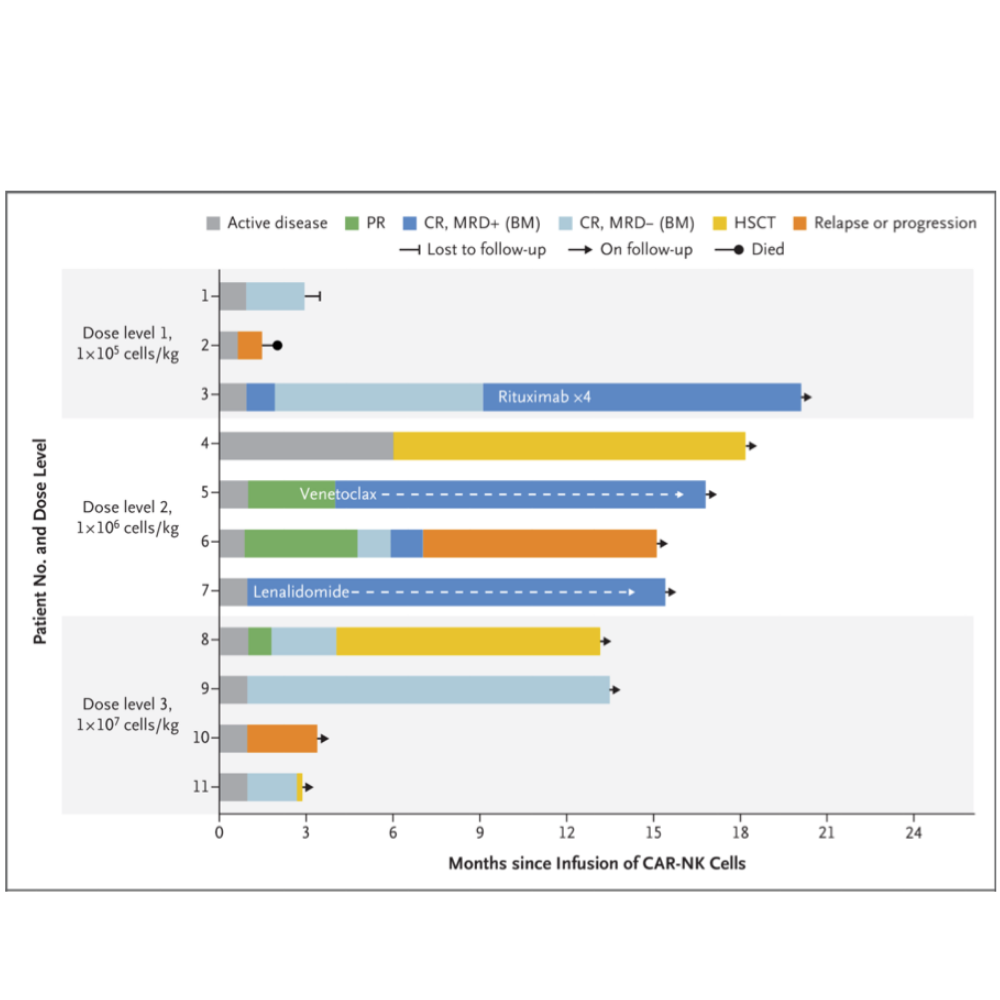
Unlock the potential of CAR-transduced natural killer (NK) cells in treating CD19-positive lymphoid tumors with our latest study. Explore the infusion of CAR-NK cells derived from cord blood, showing promising responses in patients with relapsed non-Hodgkin’s lymphoma or chronic lymphocytic leukemia. Discover how HLA-mismatched anti-CD19 CAR-NK cells, manufactured from cord blood, triggered positive treatment responses without significant toxic effects. Delve into the methodology behind the manufacture of CAR-NK cells and the treatment process involving lymphodepleting chemotherapy followed by CAR-NK cell infusion. Uncover the remarkable safety profile of CAR-NK cell therapy, with no instances of cytokine release syndrome, neurotoxicity, or graft-versus-host disease observed. Dive into the results, showcasing objective responses in 73% of patients, including complete responses in 7 patients with CLL or lymphoma. Witness the potential of CAR-NK cells in inducing responses in high-risk CD19-positive cancers with minimal adverse events.

